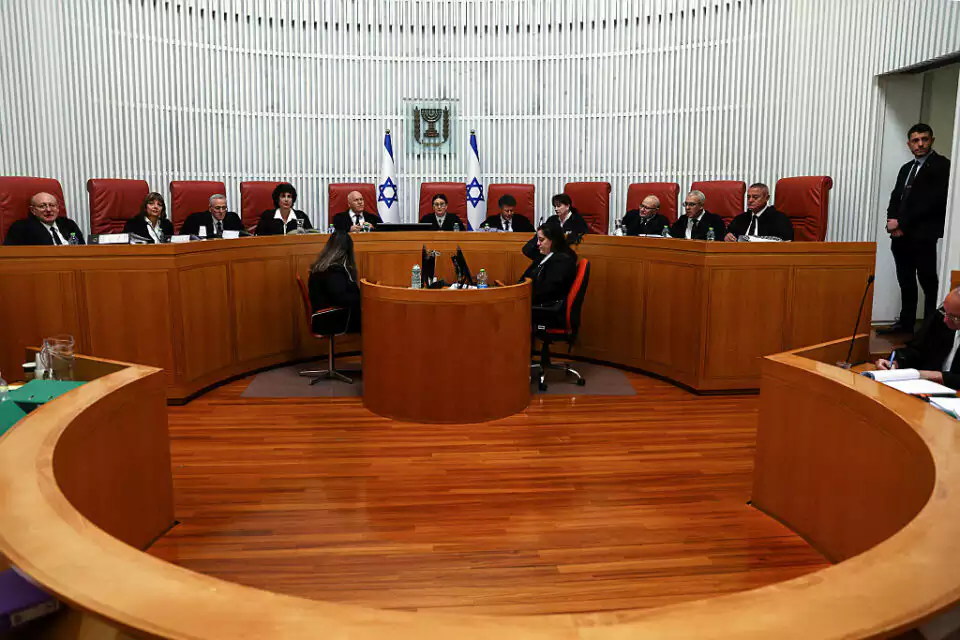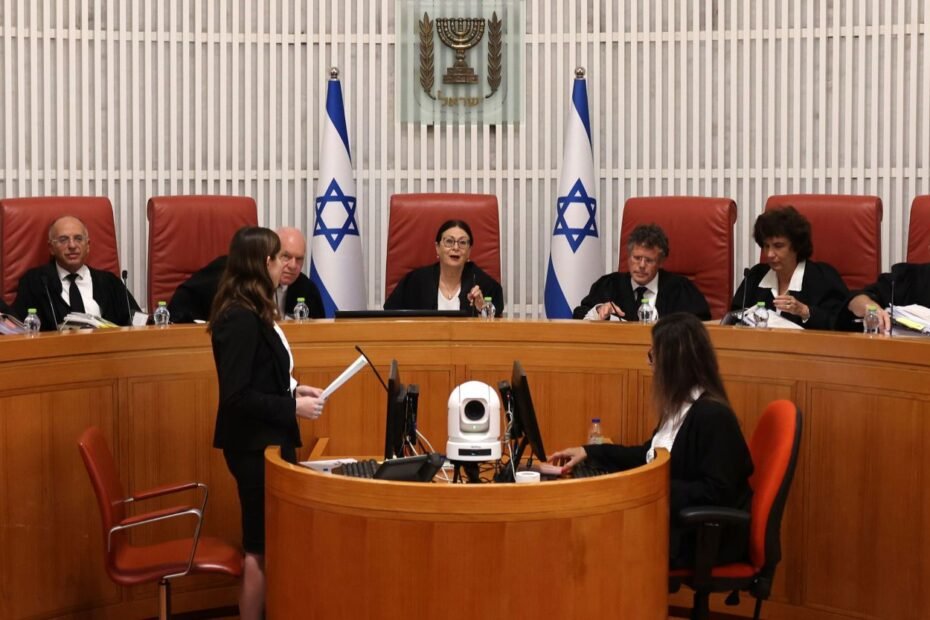In a landmark decision, Israel’s Supreme Court has invalidated a contentious amendment that aimed to curtail the judiciary’s power. The ruling, which challenges Prime Minister Netanyahu’s efforts, revolves around a proposed change that sought to strip the Supreme Court of its authority to declare government decisions as unreasonable.
Background and Legal Implications
The proposed amendment triggered widespread protests and divisions within the nation, with hundreds of thousands taking to the streets to voice their opposition. Prime Minister Netanyahu’s government pushed for a judicial overhaul that would limit the Supreme Court’s ability to challenge government decisions based on reasonableness.
This amendment, an alteration to a basic law akin to Israel’s constitution, faced unprecedented scrutiny. The Supreme Court’s decision, with a narrow margin of eight to seven against the government, underscores the significance of the legal battle.
Netanyahu’s Controversial Judicial Overhaul
Netanyahu’s government aimed to remove the Supreme Court’s power to overturn government decisions on grounds of reasonableness. An example cited in the report pertains to the attempted appointment of Aryeh Dairy, a figure with multiple convictions, as a minister. The Supreme Court, under the proposed amendment, would have been limited in challenging such decisions.
The court’s ruling preserves its authority to assess government actions for reasonableness, a power that has been instrumental in maintaining checks and balances within Israel’s political system.

Unprecedented Decision and Political Ramifications
The Supreme Court’s decision carries significant weight, marking the first instance of striking down a basic law or its amendment. The ruling signals a victory for those opposing Netanyahu’s efforts to weaken the judiciary and a loss for the government’s supporters.
As Israel grapples with the ongoing conflict with Hamas, the timing of this decision becomes crucial. The report acknowledges that the war cabinet, tasked with addressing the conflict, has largely set aside discussions related to the judicial overhaul amid the pressing matters at hand.
Prime Minister Netanyahu’s Response
The report speculates on Prime Minister Netanyahu’s potential response to the Supreme Court’s decision. The Prime Minister has previously avoided directly addressing whether he would abide by such a ruling. The political implications of this decision, especially amid the ongoing conflict, raise questions about Netanyahu’s stance on respecting the judiciary’s authority.
Divisions and Unity Amidst Conflict
While the judicial overhaul created deep divisions within Israel, the nation appeared united in the face of the conflict with Hamas. The report suggests that the war cabinet, including opposition leader Benny Gantz, has prioritized the military efforts over discussions on the controversial judiciary changes.
The war cabinet’s focus remains on addressing the conflict with Hamas and securing the release of hostages held in the Gaza Strip. The Supreme Court’s decision, however, introduces a new element that could potentially reopen discussions on the divisive issue.
Conclusion: Impact on Israel’s Political Landscape
In conclusion, the Israeli Supreme Court’s ruling against the proposed judicial overhaul marks a significant moment in the nation’s legal and political landscape. The decision upholds the court’s authority to scrutinize government decisions for reasonableness, maintaining a crucial aspect of checks and balances. As Israel navigates through the complexities of the conflict with Hamas, the court’s decision introduces additional considerations that could shape the nation’s political trajectory. Prime Minister Netanyahu’s response will likely be closely watched, and the ruling may reignite discussions on the broader issue of judicial reforms in Israel.
